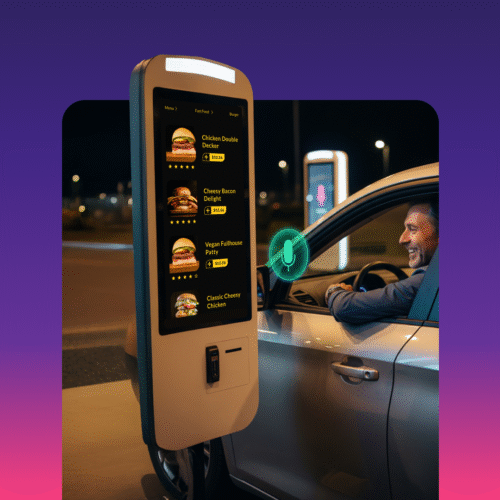Once upon a time, in a world where telephones were the primary means of communication, humanity created a technological marvel – the Dual Tone Multi-Frequency (DTMF) and the first Interactive Voice Response (IVRs). It was the 60s and 70s, and this groundbreaking technology took the first steps in automating interactions, promising cost savings for businesses and reduced waiting times for callers. But, as with any great story, there was a plot twist.
While automation brought immense benefits, it came at the cost of losing the human touch in interactions. But, as we all know, and as our mission dictates, “Humanity always needs Technology to evolve, but technology needs more humanity.” And so, the race began to restore humanity in automated interactions.
The path was long. From DTMF, we moved to systems that had limited understanding – say “payment” to make a payment – to systems that, with the right care, love, and resources… huge resources, could somewhat imitate the human touch. There was progress, but it was nothing close to the real deal.
Today, we believe that Large Language Models (LLMs) can help fully integrate humanity into conversational Artificial Intelligence technology. LLMs have demonstrated their value in various aspects of dialogue, including exceptional natural language generation capabilities, the ability to comprehend complex text, and the capacity to follow instructions. We also believe that LLMs contribute a form of intelligence to the process. While not true intelligence, the fact that human language inherently contains intelligence means that by modeling language, we have inadvertently created a new type of intellectual capacity. When all this is combined with advancements in other fields, such as text-to-speech (TTS), we find ourselves closer than ever to realizing our mission.
LLMs, along with other cutting-edge technologies, will improve understanding and dialogue handling to a level that will bring forth a new paradigm. In this brave new world, AI will handle everything by default, only escalating to a human agent when necessary. This will result in unparalleled AI fulfillment rates and user satisfaction at human-like levels.
We believe that LLMs will also streamline the entire lifecycle of AI applications – from design and implementation to cost savings and time-to-market. But, as with any great adventure, there are obstacles to overcome: halting hallucinations, ensuring security, addressing latency, and achieving cost efficiency, to name a few.
LLMs need to become lighter, faster, cheaper to train and maintain, secure, accurate, and controllable. The argument that you cannot control LLMs may not stand the test of time, especially when compared to the unpredictability of a tired, overworked agent in a 500-agent call center. As long as we can control LLMs to an extent that the margin of error and impact is acceptable to businesses, mass adoption will follow.
The challenges are here, but so are we, at the final curve of fully restoring humanity in automated interactions – and it’s looking good.
As we stand on the precipice of a new era in automated interactions, it’s clear that the “too good to be true” days may not be too far ahead. With LLMs leading the charge, we can reclaim the lost human touch in automated interactions, making them more enjoyable, efficient, and satisfying for all.
So, buckle up and join us on this exciting and inspiring journey, as we strive to bring humanity and technology together once more, proving that we can have the best of both worlds.



